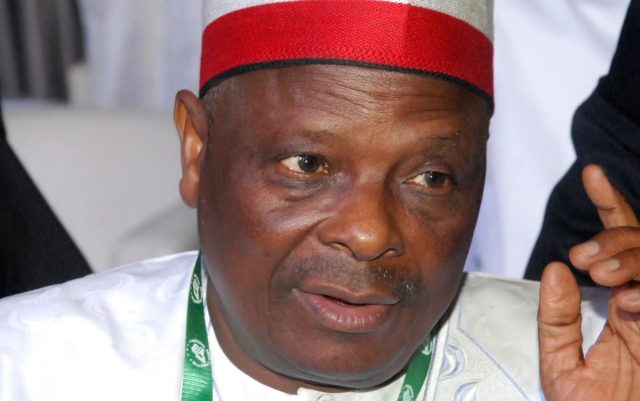The Presidency has categorically dismissed recent allegations by former Kano State governor and presidential candidate, Senator Rabiu Musa Kwankwaso, that the administration of President Bola Tinubu has sidelined Northern parts of Nigeria in its development agenda.
In a strongly worded rebuttal issued on Friday, the presidency described the senator’s claims as “unfounded, misleading, and politically motivated,” asserting that the North has not only received adequate federal attention but remains central to the Tinubu administration’s national development strategy.
According to a senior presidential aide and former Minister of Youth and Sports Development, Mr. Sunday Dare, who addressed the issue via his verified X handle @SundayDareSD, the Presidency maintained that the government has, within just two years, rolled out transformative projects and initiatives across key sectors in the North, ranging from infrastructure, agriculture, and energy to health, education, and transport.
“The facts speak for themselves. The North is not only included in the developmental vision of the President; it is central to it,” the Presidency said.
According to it, the administration has prioritized the rehabilitation and expansion of key highways and federal roads critical to Northern Nigeria’s connectivity, commerce, and mobility. Notable projects include: Abuja–Kaduna–Zaria–Kano Expressway (375 km); Kano–Kongolam Road; Zaria–Funtua–Gusau–Sokoto Dual Carriageway: 1,068 km Sokoto–Badagry Super Highway (Northern corridor section); Kano–Maiduguri Dual Carriageway; Zaria–Hunkuyi–Daya Road (152.67 km) in Kaduna and Kano states
It is equally named the Lafia Bypass Road, Nasarawa State; Malando–Ngaski–Wara Road; and Dikwa–Gamboru–Ngala Road in Borno State — a strategic international trade corridor.
In the area of agricultural transformation, the Presidency, acknowledging Northern Nigeria’s critical role in national food security, explained that the Tinubu administration has launched several targeted agricultural initiatives, including $158.15 million Agriculture Value Chain Development Programme across nine Northern states; Kolmani Integrated Development Project, a flagship energy and industrial initiative straddling Bauchi and Gombe states; Agro-Climatic Resilience in Semi-Arid Landscapes (ACReSAL) — a $700 million World Bank–backed programme to restore one million hectares of degraded land and build resilience against climate shocks; Kano River Irrigation Project, revitalised to boost large-scale irrigation and commercial agriculture.
The presidency noted that efforts to strengthen healthcare delivery have resulted in upgrades and expansion of major federal health institutions across the North, including: Ahmadu Bello University Teaching Hospital, Zaria; Federal Teaching Hospital, Katsina; University of Jos Teaching Hospital (expansion); Reference Hospital, Kaduna; Abubakar Tafawa Balewa University Teaching Hospital, Bauchi; Federal Medical Centre, Nguru, Yobe State; as well as over 1,000 Primary Healthcare Centres revitalised across Northern states.
In line with the President’s Renewed Hope agenda for energy sufficiency and industrial growth, several energy infrastructure projects have been initiated or accelerated in the North: Ajaokuta–Kaduna–Kano (AKK) Gas Pipeline (614 km), Nigeria’s most strategic gas infrastructure project; Gwagwalada Independent Power Plant, Abuja — designed to feed directly from the AKK pipeline; ABIBA Solar Power Project, Kaduna (50 MW) — boosting clean and renewable energy capacity.
The Presidency said the Tinubu administration is actively expanding rail connectivity in the region through strategic projects such as: Kaduna–Kano Standard Gauge Railway (203 km) — part of the larger Lagos–Kano rail corridor; Kano–Maradi Rail Line (285 km) — linking Kano to Niger Republic, enhancing cross-border trade; ₦100 billion Kaduna Light Rail Project — for intra-urban mobility; and rehabilitation of Abuja Metro Line — restoring metro services in the capital
To facilitate logistics, commerce, and regional integration, the government is developing: The Trans-Sahara Trade Corridor — connecting Calabar to Kano via Abuja and Nasarawa, further linking Nigeria with North Africa; Dry Inland Ports and River Ports — located across the North to support agricultural exports and manufacturing zones.
As part of Nigeria’s climate and environmental protection commitments, key interventions are also ongoing across Northern states:National Agency for the Great Green Wall (NAGGW) — receiving renewed support for afforestation and desertification control; Nigeria Erosion and Watershed Management Project (NEWMAP) — continuing erosion and flood control measures in vulnerable areas
The Presidency emphasized that these interventions, many of which had stalled for years, are now either completed, nearing completion, or being implemented at an accelerated pace under the Tinubu administration.
“It is simply incorrect and politically convenient for anyone to say the North is neglected,” the statement noted. “The President is building a Nigeria that works for all — North, South, East, and West.”
The Presidency added that President Tinubu remains committed to equitable development, devoid of regional, ethnic, or political bias — a hallmark of his leadership style and governance ethos.
“What the North has received under this administration in two years is unprecedented in scope and significance. The evidence is visible and verifiable,” the Presidency said.







